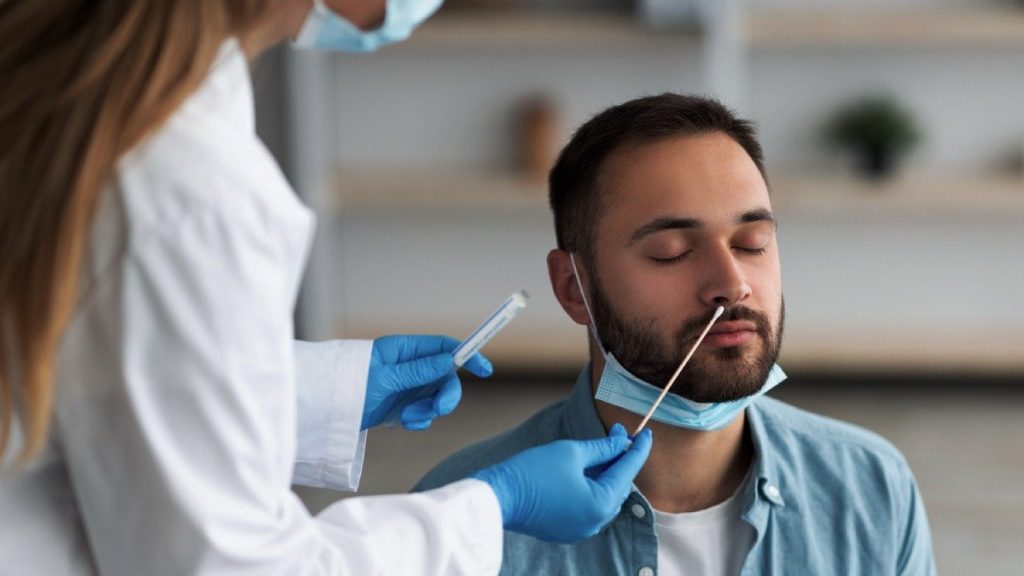In terms of post-Covid, there is still a lot of knowledge missing, for example regarding how common it is, researchers at Gothenburg State University.
Starting in 2020, they conducted a study in which healthcare workers in the Västra Götaland region were invited to answer a questionnaire about their perceived health and the likelihood of symptoms such as headaches, shortness of breath, difficulty concentrating, and loss of smell and taste. The question referred to symptoms in the past 30 days.
Postcovid, according to the World Health Organization:
Postcovid has been found in people with a history of possible or confirmed SARS-CoV-2 infection, where symptoms appear after three months of illness, persist for at least two months and cannot be explained by an alternative diagnosis. Common symptoms include, among others, fatigue, difficulty breathing, and cognitive dysfunction that generally affects the daily level of functioning. Symptoms may be new after initial recovery from severe COVID-19 or they may have persisted from the initial stage of the disease. Symptoms may also fluctuate or recur over time.
The answers were then linked to whether or not the participants had previously tested positive for covid-19. More than 10,000 people answered the survey, the majority of them women.
– When the study was planned, most post-COVID studies were based on people who became so seriously ill with COVID-19 that they required hospital care. We wanted to investigate how common post-Covid is in people who did not become seriously ill, says Simon Larsson, a physician at Sahlgrenska University Hospital and a researcher at the University of Gothenburg.
Survey participants were also asked to rate their level of job performance and their current health experience.
Combined with loss of sense of taste and smell
Results: Most symptoms are more common in the covid-19 infected group than in people who did not have covid-19. In the group that had covid-19, they also rated their health and functioning in daily life somewhat lower compared to the group that was not positive.
By far the most defining symptom of covid-19 has been a loss of smell or taste, followed by shortness of breath and chest symptoms, says Simon Larson.
More symptoms in women and the elderly
The self-rated health and occupational level was lower among women and people over 35 years of age who had COVID-19 than among those who were not ill. However, no group differences were seen between men and young adults.
Some symptoms, such as difficulty sleeping, anxiety, and headaches, were equally common regardless of whether or not a person had covid-19.
The researchers believe that the results they have been able to show so far form an important piece of the puzzle to learn more about the aftermath of Covid and the extent to which COVID-19 affects the health of those who have had mild infections. The next step will be to look more closely at the links between different symptoms in those who feel their health is affected by COVID-19.
– It is important to know how common the problem is and what you should look for more specifically in this group. Many of the symptoms are also very common among people in general. It is also important to know whether certain groups of patients are affected. For example, there have been studies that have shown that those who are vaccinated experience fewer problems in the long term. Simon Larson says that the participants in our study did not receive the vaccination.
Academic subject:
Self-reported symptom severity, general health, and impairment in post-acute stages of COVID-19: a retrospective cohort study of Swedish public servants. (Simon B. Larsson, Gustav Stockat von Felitzen, Maria E. Anderson, Per Sikora, Magnus Lind, Rikard Norden, Staffan Nilsson and Robert Siegström), Scientific reports.

“Extreme tv maven. Beer fanatic. Friendly bacon fan. Communicator. Wannabe travel expert.”









More Stories
Why Rare Earth Metals for Electric Cars Are Crucial for Modern Mobility
“We want to promote critical rules approach”
“A lot happened during the trip,” Jönköping County Council